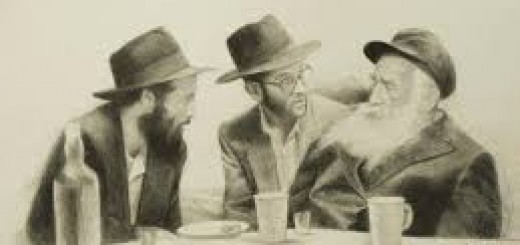To view as Pdf click here
By Rabbi Dovid Markel
The story is told of the holy Rebbe, Rabbi Yitzchak of Vorki:
Once, he was visiting the city of Warsaw for the purpose of some communal mission and was staying at a local hotel. When the Rebbe returned in the evening, the attendee found the door to his room besmirched with all manners of insults and abuse against the Rebbe.
From sheer embarrassment, the attendee did not know which way to look, but the Rebbe reassured him:
“Do not allow this to dampen your spirits. For I learned a lesson on this subject from my teacher, Reb Avraham Moshe. He was wont to point out, that those who foment controversy always slander that very attribute of character about which their victim is most vigilant.
“In support of this observation, he used to cite the case of Korach, whose complaint to Moshe Rabbeinu was (Bamidbar 16:3), ‘Why do you raise yourselves up over the congregation of G-d?’—as if he were arrogant. Whereas the Torah itself testifies (Bamidbar 12:3): ‘That man Moshe was very humble, more so than all the men on the face of the earth.[1]’”
It is surely no coincidence that the anniversary marking the Rebbe’s physical passing on the third of Tamuz falls on the week of Parshat Korach—the portion that discusses the authority of Moshe’s leadership.
Just as there were those that questioned how it was that Moshe, a relative outsider to Israel’s plight, was appointed as their greatest leader, there have been those from various camps that have questioned the Rebbe’s leadership and postulated outlandish and warped theories.
In the various biographies that have been written, all have missed the plot. They have either expressed views that are loathed to be noted here or have reduced the Rebbe to a community organizer and a loving man who sought to rebuild a shattered world.
However, in the above accounts the essence of his leadership has been neglected—that he was and is a Rebbe—an individual enveloped in G-dliness, transcendent beyond the heads of his generation, who, because his soul felt the thirst that each individual longed to be connected to G-d, lowered himself to bring about a reality permeated by G-d.
His ultimate wish was to bring about the situation where, as expressed in the Prophets (Yirmiyahu 31:33), “And no longer shall one teach his neighbor or [shall] one [teach] his brother, saying, ‘Know the Lord,’ for they shall all know Me from their smallest to their greatest, says the Lord, for I will forgive their iniquity and their sin I will no longer remember.”
The accusations leveled in our times are no different than the various bizarre claims expressed millennia ago.
Just as the Torah then testified that Moshe was exceedingly humble and that it was G-d who chose him for his role of leadership, so too is it in our generation.
The Rebbe on his own refused a position of leadership—was exceedingly humble—and only accepted it in the manner expressed in the Mishna (Avot 2:5), “In a place where there are no men, strive to be a man.”
When the very continuity of Lubavitch—and indeed world Jewry—was at stake, the Rebbe took upon a public role, becoming the leader that he never wished to be.
It was because “That man Moshe was very humble, more so than all the men on the face of the earth,” that he was “raise(d)… up over the congregation of G-d.” The Rebbe’s strength to conquer the entirety of the world with the Torah’s message was not in spite of his humility—but because of it.
His entire identity expressed G-dliness—as he was a complete conduit to express the essence of G-dliness throughout the world.
The lesson for us is twofold:
The obvious divine providence of the third of Tamuz falling out during the week of Parshat Korach teaches us that we should not—G-d forbid—delude ourselves into thinking that the reign of Moshe is no longer; that somehow after twenty-one years, it is time to move on.
This is the first message of the parsha: that Moshe is our leader and there is no one else—that the entirety of Israel clearly can testify that it is the Rebbe that is the ultimate leader, today as twenty-one years ago, and whose message and leadership affects the entirety of the Jewish people.
The second, is that we must learn from the Rebbe how to be “Moshe’s men.” The open secret of the Rebbe’s and Chabad’s success is the utter and complete submission to Torah’s ideals and goals.
Through our own humility and submission to Rebbe’s lofty goal of transforming the entirety of the world, we will, G-d-willing permeate the world with G-dliness with the coming of Moshiach.
Then, once again will we experience the pronouncement of the verse (Yeshayahu 33:17): “The King in His beauty shall your eyes behold; they shall see [from] a distant land,” and we will once again behold the countenance of our dear Rebbe.
[1] Based on S. Zevin A Treasury of Chassidic Tales. Vol. 1 Pg. 421.





















